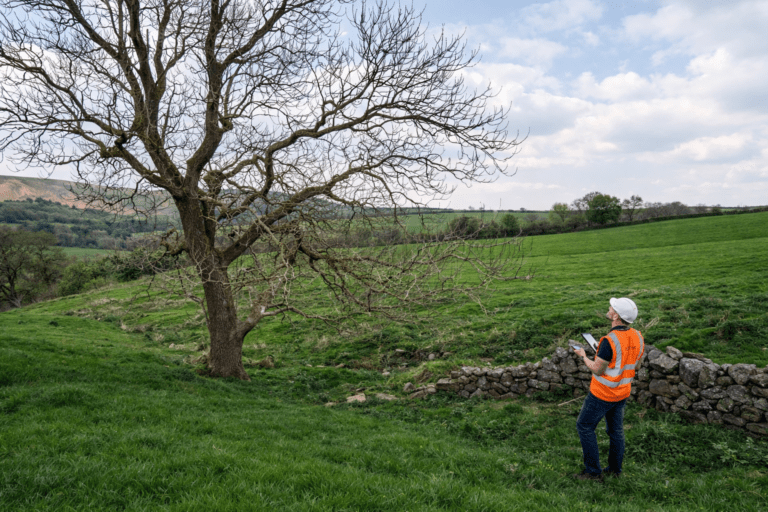Top Lawn Care Tips for Commercial Properties: Keep Your Grounds Looking Immaculate
Maintaining a pristine, green lawn is essential for commercial properties. Whether you manage an office complex, retail park, or public space, a well-kept lawn speaks volumes about your commitment to quality and professionalism. Yet, keeping commercial lawns looking their best requires more than just occasional mowing.
In this blog, we’ll share practical and effective lawn care tips tailored for commercial properties. From seasonal maintenance strategies to combatting common challenges, we’ll equip you with the knowledge to keep your green spaces thriving all year round.
Why Is Lawn Care Important for Commercial Spaces?
A well-maintained lawn contributes to a positive first impression. Whether for clients, customers, or visitors, the aesthetic appeal of your outdoor space influences perceptions of your business. Beyond visual appeal, good lawn care promotes safety, minimises maintenance costs, and supports environmental sustainability.
Healthy lawns offer the following benefits:
- Enhanced Curb Appeal: Clean, green spaces create a welcoming atmosphere.
- Improved Safety: Regular care prevents overgrowth that could cause trip hazards.
- Environmental Benefits: Grass absorbs carbon dioxide, filters pollutants, and reduces surface temperatures.
- Cost Savings: Preventative care reduces the need for major restoration projects.
Essential Lawn Care Tips for Commercial Properties
1. Develop a Maintenance Schedule
Regularity is key. Establish a clear maintenance calendar that includes mowing, fertilising, aeration, and weed control. Align tasks with seasonal changes to ensure optimal lawn health.
Tip: During peak growing seasons (spring and summer), mowing may be needed weekly, while autumn and winter require less frequent attention.
2. Invest in Aeration and Soil Health
Compacted soil restricts root growth, making lawns prone to waterlogging and poor health. Aeration helps alleviate compaction by perforating the soil, allowing oxygen, water, and nutrients to reach the roots.
Tip: Aerate in early spring or autumn when grass is actively growing, ensuring a quick recovery.
3. Fertilise Correctly
Commercial lawns require balanced nutrition to maintain density and colour. Use slow-release fertilisers that provide a steady supply of nutrients, and consider soil testing to identify specific deficiencies.
Tip: Apply fertiliser during the growing season to support robust, green growth.
4. Water Wisely
Overwatering can harm your lawn just as much as drought. Install automated irrigation systems to deliver precise amounts of water, and focus on deep, infrequent watering to encourage deep root growth.
Tip: Water early in the morning to reduce evaporation and minimise the risk of fungal diseases.
5. Control Weeds and Pests
Weeds and pests can quickly undermine lawn health. Regular monitoring and targeted treatments are crucial to keeping invasive species and damaging insects at bay.
Tip: Use integrated pest management (IPM) strategies to reduce chemical use while effectively managing threats.
6. Prepare for Seasonal Changes
Lawn care needs shift throughout the year. In spring, focus on rejuvenation; in summer, manage heat stress; in autumn, strengthen roots; and in winter, protect from frost.
Tip: Scarification in autumn removes thatch and helps aerate the soil, while light mowing during mild winter periods keeps the grass tidy.
7. High-Traffic Area Solutions
Commercial properties often face wear and tear from foot traffic and events. Reinforced turf systems or grass varieties suited for high-traffic use can maintain durability.
Tip: Rotate usage areas to allow recovery time for heavily used sections.
Frequently Asked Questions
How often should commercial lawns be mowed? During peak growth, once a week is ideal. In cooler months, this may reduce to every 10-14 days.
What is the best time to water commercial lawns? Early mornings are best, as cooler temperatures reduce evaporation and help prevent disease.
How do I control weeds without harming the grass? Targeted herbicide application and regular mowing help reduce weed competition.
Can lawns survive without irrigation? While some grass varieties are drought-tolerant, consistent irrigation during dry spells is essential for maintaining lush lawns.
Why Choose Professional Lawn Care?
Managing a commercial lawn can be time-consuming and requires specialist knowledge. Hiring professionals ensures that your lawn receives the highest standard of care, including:
- Expert problem-solving for challenging lawn conditions.
- Sustainable practices that minimise environmental impact.
- Access to advanced equipment for efficient maintenance.
- Tailored care plans that fit your specific site needs.
Conclusion
Keeping commercial lawns vibrant and healthy requires a strategic approach and consistent effort. By following these tips and partnering with a professional grounds maintenance provider, you can ensure that your outdoor spaces remain visually impressive and practical year-round.
Don’t let lawn care become a burden – invest in expertise to keep your commercial property looking its best.
Killingley Insights is the editorial voice of NT Killingley Ltd, drawing on decades of experience in landscaping, environmental enhancements, and civil engineering projects across the UK.








